Championed by our Director of Athletics Maisha Kelly, in collaboration with our colleagues at the Office of University and Community Partnerships, these deepening connections with the Locke School and other neighborhood schools exemplify Drexel’s spirit of civic engagement at its best.
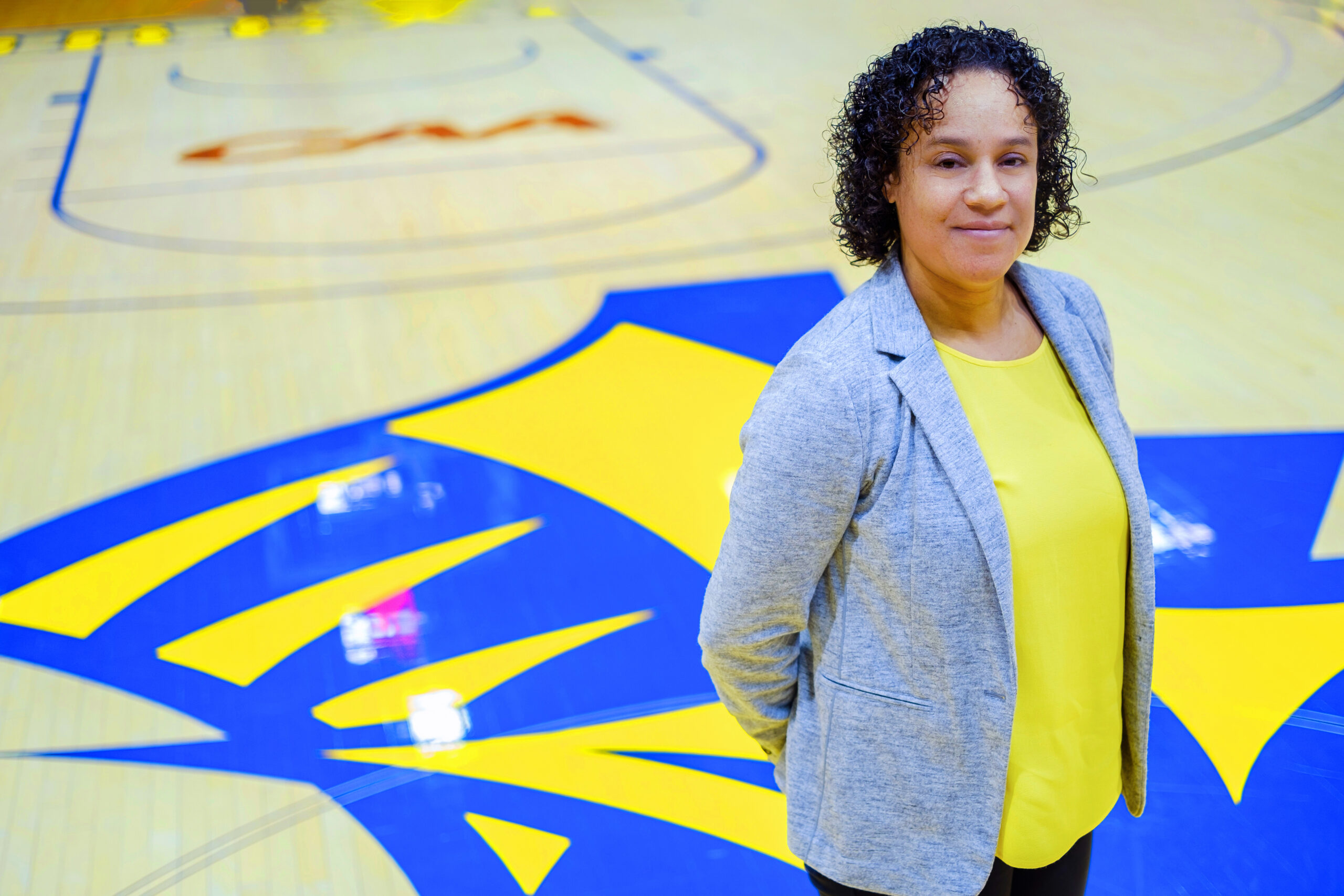 Director of Athletics Maisha Kelly
Director of Athletics Maisha Kelly
More than a decade ago, we made some major commitments and big bets to revitalize our academic, administrative and capital infrastructure and pursue a bold civic mission through strategic planning and partnerships. This President’s Report showcases a large sample of the many historic achievements and milestones in experiential learning, research, campus development and fundraising — and yes, athletics — that have validated those commitments and continue to bear fruit, helping to create an extraordinarily high-performing, innovative and civically engaged version of Drexel.
Before you explore this report, I would like to highlight some of the many notable milestones and achievements that show Drexel doing well by our students and right by our partners, neighbors, stakeholders and the society we are privileged to serve.
Status and Impact as a Research Powerhouse
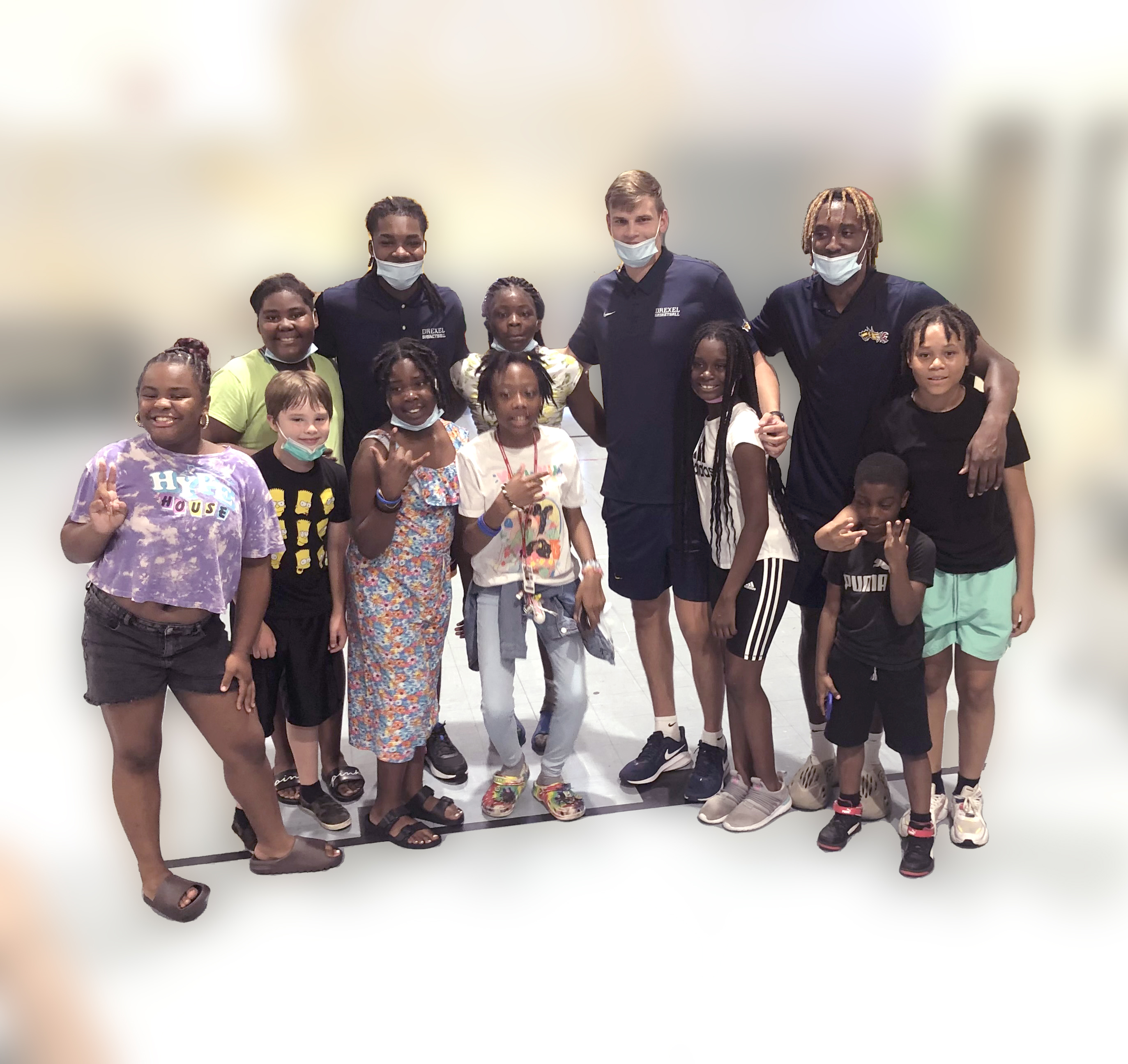 Drexel student-athletes with students from the Alain Locke School
Drexel student-athletes with students from the Alain Locke School
Drexel remained in the highest echelon of research institutions by securing its coveted Carnegie Classification R1 designation in 2022, making us one of only 39 private doctoral universities (and 137 overall) with “very high research activity.” The same combination of strategic planning, collaboration and hard work by our faculty, doctoral students and professional staff that elevated Drexel into the R1 ranks for the first time in 2018 — helped significantly by the five-year, $30 million Department of Education Promise Neighborhoods grant secured at the end of 2016 — has been responsible for keeping our research expenditures and doctoral degree conferrals at R1 levels.
Sponsored research expenditures at Drexel for FY22 rose 9% to $145 million, an increase of $12 million over the previous year, and we got off to a running start for the new fiscal year with the exciting news that the A.J. Drexel Autism Institute was awarded a five-year, $10 million Autism Centers of Excellence Grant (ACE) from the National Institutes of Health to understand and reduce barriers to well-being and health care access for people with autism. Only five universities in the country have received more than one ACE award, and Drexel has received three.
Twelve years ago, we invested $9 million over five years to launch what we envisioned would be the nation’s first comprehensive, interdisciplinary public health institute focused on autism research at Drexel. That bet paid off: The Autism Institute has grown into a highly productive research center that has received more than $61 million in sponsored research grants over the past 10 years. As important, the Autism Institute has set a high standard for innovative research and community-based initiatives that have produced tangible benefits for people with autism and their families in Philadelphia and beyond.
We continue to find promising new uses for MXenes, the novel 2D material invented at Drexel in 2011 by Distinguished University and Charles T. and Ruth M. Bach Professor Yury Gogotsi, PhD, and Distinguished Professor Michel Barsoum, PhD. Every season brings fresh insights into the material’s unique properties, which promise a vast number of commercial applications in electronics, energy storage, medicine and more. MXene research inspired 4,000 new scientific papers in 2022 alone and was the subject of four conferences, including the Second International Mxene Conference, which drew 225 attendees to Drexel from 27 countries.
I am also proud that the Howard Hughes Medical Institute awarded Drexel a $1.155 million Inclusive Excellence grant to explore more effective teaching strategies for engaging students from all backgrounds, including those who belong to groups traditionally underrepresented in science, technology, engineering and math (STEM) fields.
Drexel’s affiliation with The Academy of Natural Sciences continues to flourish, as this year we officially launched the Environmental Collaboratory. This interdisciplinary endeavor unites great talent from Drexel to develop innovative research, new courses, programming and applied solutions to environmental problems and threats from climate change. The Collaboratory was recently awarded a $2 million grant to begin pursuing community-based climate solutions.
From using AI to predict the severity of the next COVID variant, support materials science research, and promote earlier detection of dementia … to developing new technologies that help physicians better detect and treat maladies from infections to tumors … and so much more, our faculty and students are extending the frontiers of scientific research in phenomenal ways.
Our Diverse, High-Caliber Entering Class
In an extremely competitive admissions environment, Drexel attracted higher-achieving students and applicants from more diverse populations. The SAT scores submitted by this year’s incoming class carry a median of 1340 — a full 20 points higher than those of the class of 2021 — and a GPA of 3.84, also a significant increase. Just as importantly, this class will continue to reflect the intentional gains that we have achieved regarding demographic expansion within our student body: 17% identify as underrepresented students of color, 12% are international students hailing from more than 60 countries, and almost 30% are first-generation college students. This class will more closely resemble the fabric of our evolving global society while adding to the diversity on our campus. Virtually every one of these students will enjoy life-changing learning-by-doing experiences through our signature co-op program, and some will join the ranks of accomplished undergraduate researchers through our competitive STARS (Students Tackling Advanced Research) Scholars Program run by the Pennoni Honors College.
Accelerating Momentum across Drexel’s Innovation ‘Neighborhood’
Fresh off the exciting news at the end of 2021 that Spark Therapeutics would build a $575 million, 500,000-square-foot gene therapy research and manufacturing facility on Drexel’s campus, the University finalized our partnership agreement with Gattuso Development Partners to build Philadelphia’s largest life sciences research and laboratory facility in the heart of campus, immediately adjacent to the Arlen Specter US Squash Center. This 11-story, 508,000-square-foot complex will support teaching and research within the College of Engineering and the School of Biomedical Engineering, Science and Health Systems, along with faculty and student entrepreneurial ventures and startups throughout the University. This facility has also already secured its first major tenant, Boston-based Smart Labs, a strong validation of Drexel’s success in building an ecosystem for Philadelphia’s burgeoning cell and gene therapy industry.
This past fall, the Drexel community joined with our business and civic partners to celebrate the opening of our 12-story, 460,000-square-foot state-of-the-art Health Sciences Building at the uCity Square Innovation District at 36th and Filbert streets. Featuring instructional spaces, offices, simulation spaces, anatomy teaching spaces and wet labs, this spectacular building will furnish our students, faculty and professional staff at the College of Nursing and Health Professions, the College of Medicine, and the Graduate School of Biomedical Sciences and Professional Studies with an ideal environment and the resources that will empower collaboration and innovation.
That, in turn, will help to galvanize our entire University to lead the way in interprofessional education, clinical training and research across the health sciences. And importantly, having the Health Sciences Building next door to the Samuel Powel Elementary School and the Science Leadership Academy Middle School creates a vibrant place where the Drexel community and our West Philadelphia neighbors can literally come together in partnership, fellowship and shared purpose.
The breadth and depth of our work to spearhead the development of Philadelphia’s next great economy around life sciences and technology is captured in the article “Land, Science and Talent,” included in this report.
Supporting Pathways for All
A key component of our civic engagement strategy has been to promote an inclusive, multi-faceted approach to economic opportunity in West Philadelphia by creating effective pathways to college, adult education and job training, and entrepreneurship for residents of Mantua and Powelton Village. Whether it is providing skills training, creative writing forums and pro bono legal services through our Dornsife Center for Neighborhood Partnerships or supporting a network of public schools and childcare centers in the federal Promise Zone, we understand that our neighbors are important partners and contributors within our innovation ecosystem.
We are tremendously proud, for instance, of our partnership with Mantua residents not only to help keep their beloved Morton McMichael School open when it was threatened with closure a decade ago, but to work with school leadership and staff to support improved instruction, school climate, after-school programming and school beautification projects, including a wonderful new playground. We could not have been more thrilled by the news last fall that McMichael had secured a breakthrough “Beat the Odds” grant from the nonprofit Elevate 215 that will support efforts to further improve academic outcomes.
Meanwhile, we recently received more good news: The Mellon Foundation awarded Drexel one of its inaugural, competitive Higher Learning Open Call grants to underwrite a project that aims to bring the power of the humanities to bear on social justice issues in West Philadelphia and beyond. Writers Room, Drexel’s community-involved literary arts program, will serve as the academic center for this exciting project, called “UnMapping: A Project of Radical Textual Geographies.”
A Successful Campaign to Win the Future
Our historic, record-breaking The Future is a Place We Make Campaign for Drexel surpassed its $750 million goal six months ahead of schedule and raised $806 million by rallying our friends and alumni around a vision of an even more inclusive, innovative and impactful University. The campaign’s success will be felt everywhere for decades to come — from creating a stunning learning and living hub for Pennoni Honors College at Bentley Hall and revitalizing facilities for our incredibly talented student-athletes … to establishing 19 endowed professorships, chairs and athletic coach positions and more than 300 endowed student scholarships and fellowships, including the Nina Henderson Provost Scholars Program for high-achieving future leaders … to launching innovative centers for interdisciplinary teaching and research, such as The Ubuntu Center on Racism, Global Movements, and Population Health Equity at the Dornsife School of Public Health, thanks to a $9 million gift from Dana and David Dornsife — and so much more. Please make sure you read our in-depth wrap-up of the campaign in this report.
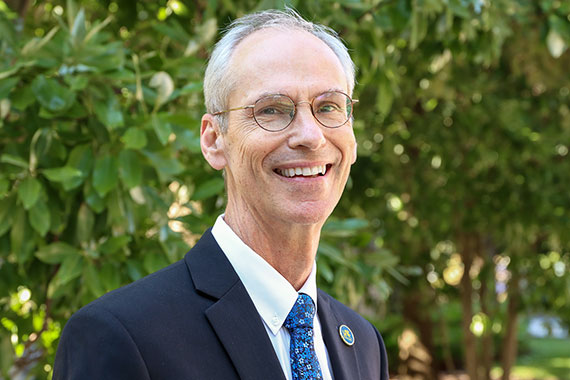 David S. Brown, PhD
David S. Brown, PhD
Transition Updates
Drexel experienced several changes in the academic leadership ranks in 2022.
- David S. Brown, PhD, a collaborative academic leader and eminent interdisciplinary scholar of political science with expertise in political institutions and their impact on economic development, arrived as the new dean of the College and Arts and Sciences. He most recently served as the Divisional Dean for Social Sciences in the College of Arts and Sciences at the University of Colorado Boulder, where he is credited with leading several initiatives that strengthened student-retention efforts and supported faculty development of inventive pedagogies. You can hear more from David here.
- Laura Gitlin, PhD, stepped down as dean of the College of Nursing and Health Professions. Laura was tremendously successful in raising the college’s national reputation and research profile, and she was instrumental in its seamless move from Center City to its new home in the Health Sciences Building. As we conduct a national search for her permanent successor, the college will be in the capable hands of Interim Dean Ann Branchini, who most recently served as interim dean of Academic Services at Brandeis University. Branchini brings to Drexel a background in academic nursing and a distinguished career in strategic planning and academic leadership.
- Ana Diez Roux, PhD, will transition back to the faculty after serving for her second and highly successful five-year term as dean at the Dana and David Dornsife School of Public Health. Under her leadership, the school secured significant National Institutes of Health awards, conducted groundbreaking and highly influential research on gun violence and COVID’s disproportionate impacts on communities of color, and launched The Ubuntu Center on Racism, Global Movements, and Population Health Equity with incredible support from the Dornsifes. A nationwide search for Roux’s successor will soon be underway.
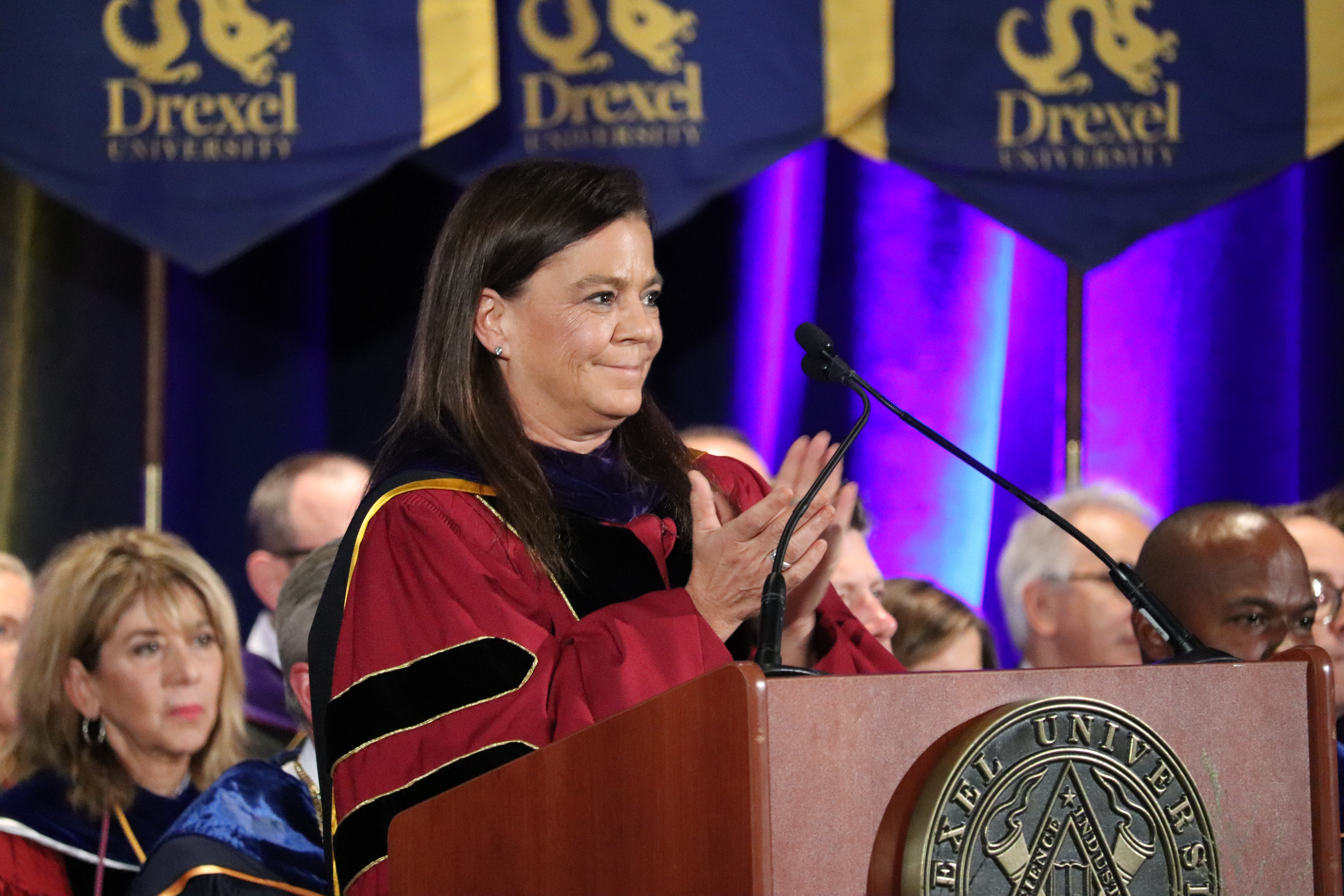 Penny Hammrich, PhD
Penny Hammrich, PhD
- On a somber, tragic note, the University community suffered a devastating loss over the summer with the sudden passing of our beloved friend and colleague Penny Hammrich, PhD, dean and Distinguished University Professor for the School of Education. An accomplished academic administrator with a record of major research, she joined our Drexel community in 2010 as a professor and associate dean for Academic Affairs. In just three years as dean, she launched several programs and initiatives that have benefited the school’s students, faculty and communities we serve. Among the new education research labs that she helped to create was the Lisa and John McNichol Early Childhood Education Lab, which has had a significant impact on pre-K education in Philadelphia and beyond. Drexel Senior Vice Provost Erin McNamara Horvat, PhD, will serve as the School of Education’s interim dean until we appoint a successor who, we hope, can match Hammrich’s passion for education and dedication to Drexel.
Fighting Through Headwinds
In addition to remaining vigilant and proactive in safeguarding our community against COVID, Drexel responded vigorously and strategically to other challenges not entirely unrelated to the pandemic. While recent data indicated that crime in U.S. cities overall had declined by the end of the year, we all were unsettled by a rise in robberies in our ZIP code last year and by gun violence in other parts of the city. Drexel responded by doubling down on measures to improve public safety, including the hiring of additional police officers, stepped-up foot patrols and expanded shuttle services.
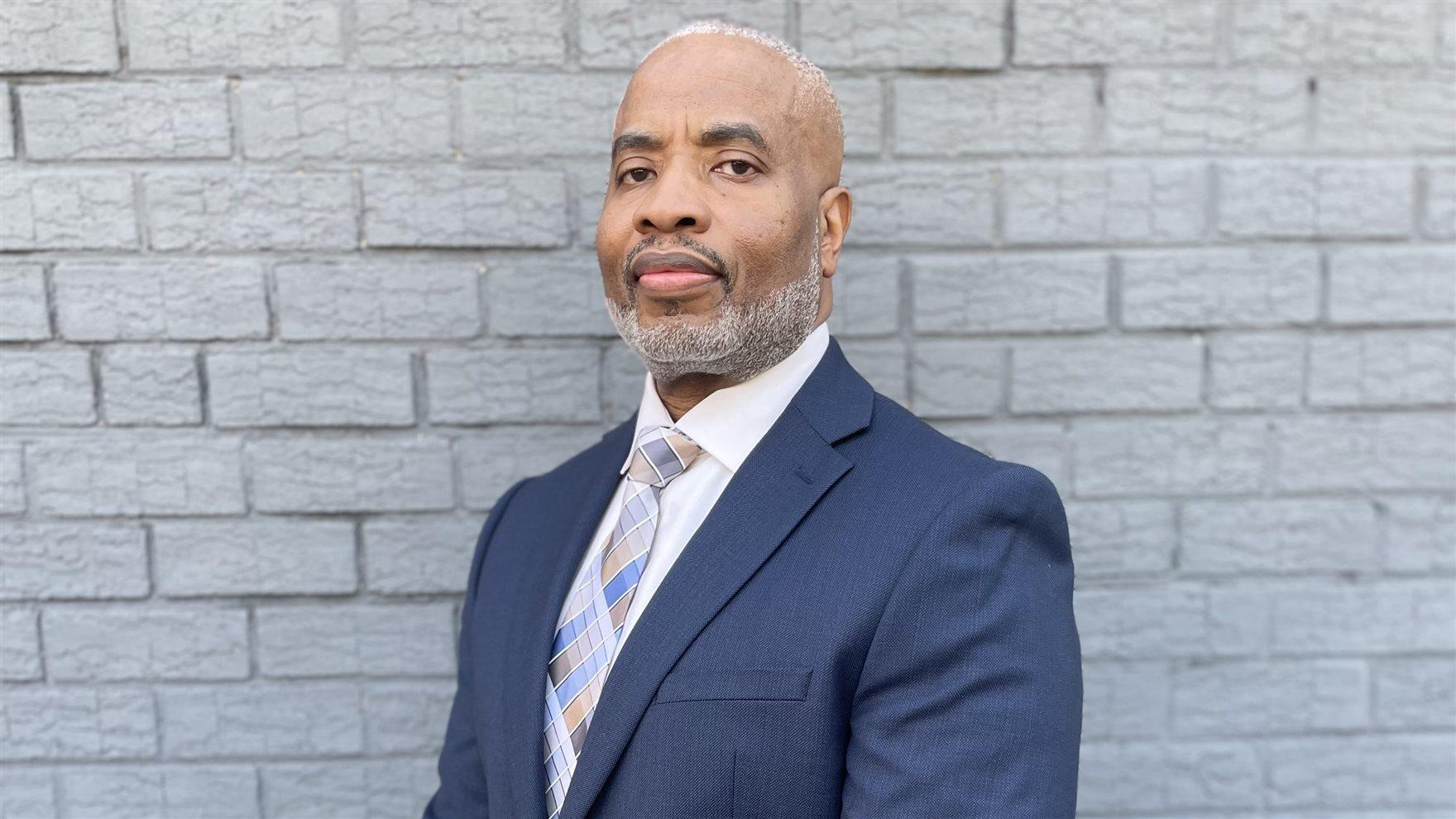 Melvin “Mel” Singleton Jr.
Melvin “Mel” Singleton Jr.
At the same time, led by Melvin “Mel” Singleton Jr., Drexel’s new vice president of Public Safety and chief of police (and 28-year veteran and former captain of the Philadelphia Police Department), Drexel is implementing a strategy for improving public safety with an emphasis on prevention, preparedness and partnership — both within our community and with our neighbors.
Signs of Rejuvenation and Renewed Purpose: Closing Thoughts
In 2022, Drexel took on another important civic role as trustee of the Atwater Kent Collection, an extraordinary assemblage of some 130,000 rare historic artifacts and archival materials relating to Philadelphia and American history. We have already begun previewing part of this collection virtually. With experience and expertise in curating our Founding Collections and other holdings of art, artifacts and other materials, Drexel is well suited to work with Philadelphia’s many institutions and cultural organizations to ensure that holdings from the Atwater Kent Collection can be borrowed, displayed, interpreted, and once again appreciated throughout the city.
Another gem of history returned to display in 2022 when repairs were finished on the skylight and ceiling of Drexel’s iconic Main Building. The full restoration of the building’s exterior masonry, which will be completed in 2023, is a fitting symbol for our rejuvenated University. Against powerful headwinds, including a pandemic that has taken an enormous human and financial toll over the past three years, Drexel has made impressive progress across all its core endeavors, and is positioned for greater success in the future.
I conclude with a brief reflection on two public art sculpture installations by two internationally acclaimed artists: Monument in Waiting, by Theaster Gates, at the Korman Quad on 33rd Street, and Pars Pro Toto, by Alicja Kwade, an array of eight rare stones along Lancaster Walk.
Passing by Pars Pro Toto (Latin for “for a part of the whole”) inspires me to ponder the profound ways that Drexel is anchored to this community, the ever-expanding scope of our work, and a humbling sense of the vastness of a universe that should reorient everyone’s focus toward what matters most.
When I pass by the stone plinths and granite tiles of Monuments in Waiting, I contemplate both the progress we have made as a university and society toward fulfilling America’s democratic ideals, and the considerable ground left to cover. I am struck by this inscription: “Until real heroes bloom, this dusty plinth will wait.” In working to make Drexel a more powerful force for civic progress and a champion of institutional equity, innovation and inclusion, I can assure you that our dedicated University family will not wait. Onward to 2023.
With Hope,

President John Fry